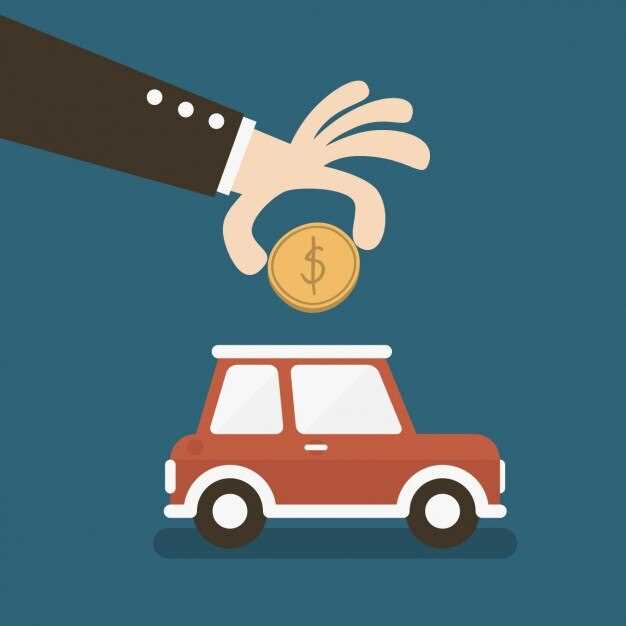
Acquiring a luxury vehicle represents more than just a significant investment; it embodies a lifestyle choice that caters to comfort, performance, and prestige. As the market for high-end automobiles continues to grow, prospective buyers are often faced with the challenge of navigating various financing options tailored to their financial situations. Understanding these options is crucial for making an informed decision that aligns with both your budget and aspirations.
Luxury vehicles typically come with a higher price tag, demanding a comprehensive approach to financing. Traditional dealership financing, often presented at the point of sale, can be convenient yet may not always offer the most competitive rates. Alternatively, exploring bank loans or credit unions can provide buyers with greater flexibility and lower interest rates, making such options worthy of consideration.
In addition to classic financing methods, leasing has gained popularity among luxury vehicle enthusiasts. This option allows individuals to drive a new car every few years while managing monthly expenses comfortably. However, it’s essential to weigh the pros and cons of leasing versus buying to determine which avenue best suits your long-term goals.
Ultimately, the choice of financing plays a vital role in ensuring that your luxury vehicle purchase is both enjoyable and financially sound. By evaluating all available options, you can select a plan that not only meets your immediate needs but also aligns with your future financial objectives.
Understanding Luxury Vehicle Lease Agreements

Leasing a luxury vehicle is a popular option for many buyers who desire the benefits of driving high-end cars without the long-term commitment of ownership. However, understanding the nuances of lease agreements is essential to ensure a favorable experience.
A lease agreement is essentially a contract between the lessee and the leasing company, allowing the lessee to use the vehicle for a specific period, typically ranging from two to four years. Monthly payments are often lower than financing a purchase since the lessee is only paying for the vehicle’s depreciation during the lease term, not its full value.
One key aspect of lease agreements is the residual value, which is the estimated worth of the vehicle at the end of the lease. A higher residual value generally leads to lower monthly payments. It’s crucial to analyze this figure, as it reflects how well the vehicle is expected to retain its value.
Another important factor is the mileage allowance. Most lease agreements come with annual mileage limits, commonly between 10,000 to 15,000 miles. Exceeding this limit may result in hefty fees, making it vital to consider your driving habits before signing. Some leasing companies offer mileage packages for an additional cost, providing more flexibility for drivers who anticipate higher usage.
The lease terms should also outline any maintenance and repairs responsibilities. Luxury vehicles often come with comprehensive warranties, but understanding what is covered can save lessees from unexpected expenses. Additionally, regular maintenance might be required to avoid penalties.
It’s also important to review the early termination fees within the lease agreement. Life circumstances can change, and knowing the potential costs associated with ending the lease early can prevent financial surprises later.
Lastly, lessees should be aware of the final disposition charge, which may apply if the vehicle exhibits excessive wear and tear or is returned not in accordance with the pre-stated conditions. Understanding what constitutes “normal wear” can help prevent additional costs upon return.
In conclusion, luxury vehicle lease agreements offer a flexible and financially sound method for enjoying high-end automobiles. However, careful scrutiny of the lease terms and conditions is essential to maximize benefits and minimize potential downsides.
Exploring Bank Loans vs. Dealership Financing
When considering financing options for purchasing a luxury vehicle, two popular choices emerge: bank loans and dealership financing. Each option has distinct advantages and potential drawbacks that can significantly influence your overall buying experience. Understanding these differences is critical for making an informed decision.
Bank Loans
Bank loans typically involve obtaining credit from a traditional bank or credit union. Here are some key characteristics:
- Interest Rates: Banks often offer competitive interest rates, especially for borrowers with excellent credit. This can result in substantial savings over the life of the loan.
- Loan Terms: Borrowers have flexibility in choosing loan terms, which can range from 36 to 72 months or more. Shorter terms usually lead to lower overall interest costs.
- Loan Approval Process: The approval process may take longer than dealership financing, requiring more documentation and credit checks.
- Pre-Approval: Securing pre-approval before shopping can help you understand your budget and strengthen your negotiating position with dealerships.
Dealership Financing

Dealership financing, often referred to as dealer financing, is provided directly through the automotive dealership. This option comes with its own set of pros and cons:
- Convenience: Financing through the dealer can be more convenient and quick, with often same-day approvals and paperwork processed on-site.
- Special Promotions: Dealerships frequently offer special financing promotions, such as 0% interest for a limited time, which can be appealing for buyers.
- Bundled Services: Some dealers may include additional benefits, such as extended warranties or maintenance plans, as part of the financing deal.
- Higher Interest Rates: Typically, dealership financing can come with higher interest rates compared to bank loans, particularly for buyers with average or below-average credit.
Comparative Analysis
When deciding between bank loans and dealership financing, consider the following factors:
- Interest Rates: Assess the rates being offered by both bank and dealer financing; a lower rate can save you money over time.
- Fees and Terms: Examine any additional fees associated with each option and the length of the loan term.
- Credit Score Impact: Investigate how each financing option might impact your credit score during the application process.
- Overall Cost: Calculate the total cost of the loan including interest, fees, and any added dealer incentives.
Ultimately, the choice between bank loans and dealership financing depends on your individual financial situation, creditworthiness, and the specific offers available at the time of purchase. Evaluate both options carefully to ensure you secure the best financing deal for your luxury vehicle purchase.
Utilizing Personal Loans for Luxury Car Purchases
Purchasing a luxury vehicle often requires a significant financial commitment. One of the viable options for financing such an acquisition is utilizing a personal loan. Personal loans provide borrowers with a fixed amount of money that can be repaid over a set period, making them an attractive alternative for those looking to purchase a high-end car without tapping into savings or resorting to more complex financing methods.
One of the key advantages of personal loans is their flexibility. Unlike dealership financing, which may come with strict terms and conditions, personal loans can typically be used for any purpose, including luxury car purchases. This allows buyers to negotiate the best deal with dealers independently, potentially saving them money in the long run.
Another benefit is that personal loans often come with competitive interest rates, especially for borrowers with strong credit profiles. Lower interest rates can significantly reduce the overall cost of financing a luxury vehicle, making it more affordable to manage monthly payments. Borrowers should shop around and compare rates from different lenders to secure the most favorable terms.
Moreover, personal loans usually have a straightforward application process, with funds often disbursed quickly, enabling buyers to act fast when they find the right luxury vehicle. This immediacy can be crucial in a competitive market, where desirable cars don’t last long.
However, potential borrowers must consider their creditworthiness before applying for a personal loan. Lenders typically evaluate credit scores, income, and debt-to-income ratios when determining eligibility and interest rates. Maintaining a good credit score will not only increase the chances of loan approval but also help in obtaining the best rates available.
Finally, it’s essential for individuals to carefully assess their financial situation before taking on a personal loan for a luxury vehicle. This includes ensuring that monthly loan payments fit comfortably within their budget and considering the long-term costs of ownership, such as insurance, maintenance, and depreciation. By doing so, buyers can enjoy their luxury car without the burden of financial strain.

